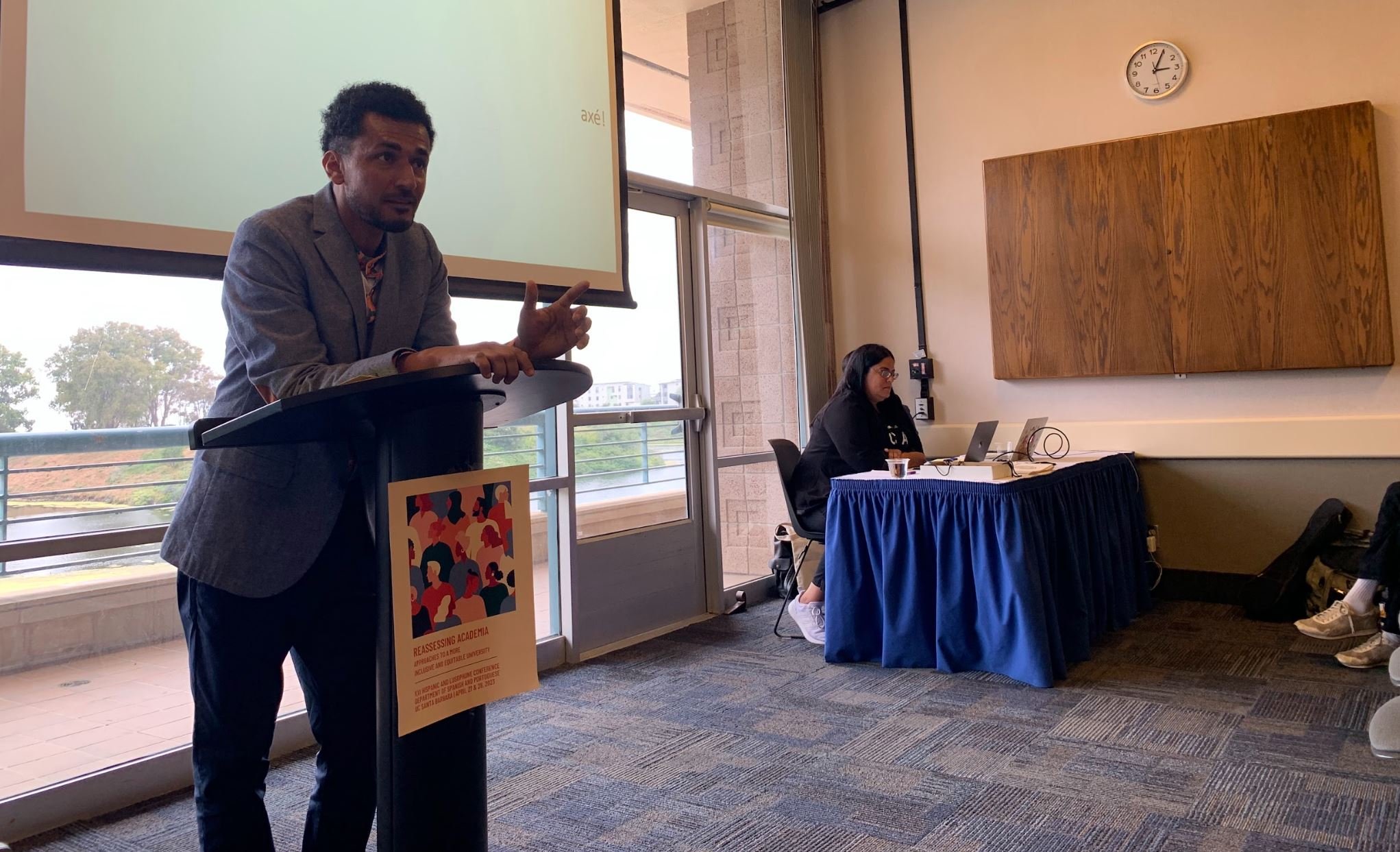By Maxwell Wilkens
Black Studies professor Jaime Alves says scholars of Hispanic, Black, and Portuguese studies at UC Santa Barbara should frame the history of Black identity in Latin America as a resistance to colonial narratives that have falsely asserted Blacks were fully integrated into society.
In a recent lecture, Alves said that settlers in colonial Brazil raped Black slaves and spread rumors that Black women were “easy” and “good in bed,” which he said was an attempt dilute their “unredeemable” Blackness through coerced sexual relationships.
In fact, because of a history of exploitation, Black people living in modern Brazil still face chronic poverty. “The region’s race-based urban inequalities are a faithful portrayal of the historical place and resentment reserved for Black people in the Americas,” Alves told his audience.
The talk was part of the 21st Hispanic and Lusophone Conference, hosted annually by UCSB’s department of Spanish and Portuguese. This year’s edition focused on approaches to a more inclusive and equitable university environment, and was moderated by Spanish and Portuguese graduate student Xiaorui Chu.
The event was also co-sponsored by the department of Black Studies, the Center for Portuguese Studies, the Comparative Literature Program, the Latin American and Iberian Studies Program, the Interdisciplinary Humanities Center, and the Graduate Student Association.
Jaime Alves, professor of Black Studies at UCSB, said that scholars should frame Black history in Latin America as a resistance to colonial narratives.
Historical narratives of Black exploitation in Latin America are not just limited to Brazil, Alves said. When colonizers from Spain arrived in Colombia in the early 15th century, their economies relied on forced Black labor.
Even though slavery is abolished in the modern era, the idea of Black inferiority continues to shape the lives of Black people in Colombia today, he said. Colombia is currently involved in the longest spanning armed conflict in Latin American history. And, while most guerilla movements claim to fight for social justice, soldiers routinely displace Black women from their homes as they scramble for territorial control.
“The fumigation of Black territories…generates mass evictions, decimates nature, produces false appearances, and fuels wars,” Alves said. The Black victims that guerilla movements claim to fight for are often moved to urban spaces where they face unemployment and crime.
Since Brazil and Colombia continue to tout false, colonial narratives, it is important that academic departments at UCSB work to resist them, Alves said. “If [Latin] America is an imperial formation…Blackness can be the insurgent, disloyal opposition against this imperial formation,” he said. “Black life…is not only a life lived in exclusion, but also a life lived in refusal of inclusion.”
Maxwell Wilkens is a third-year UC Santa Barbara student majoring in Communication and Music Studies. He is a Web and Social Media Intern for the Division of Humanities and Fine Arts.


